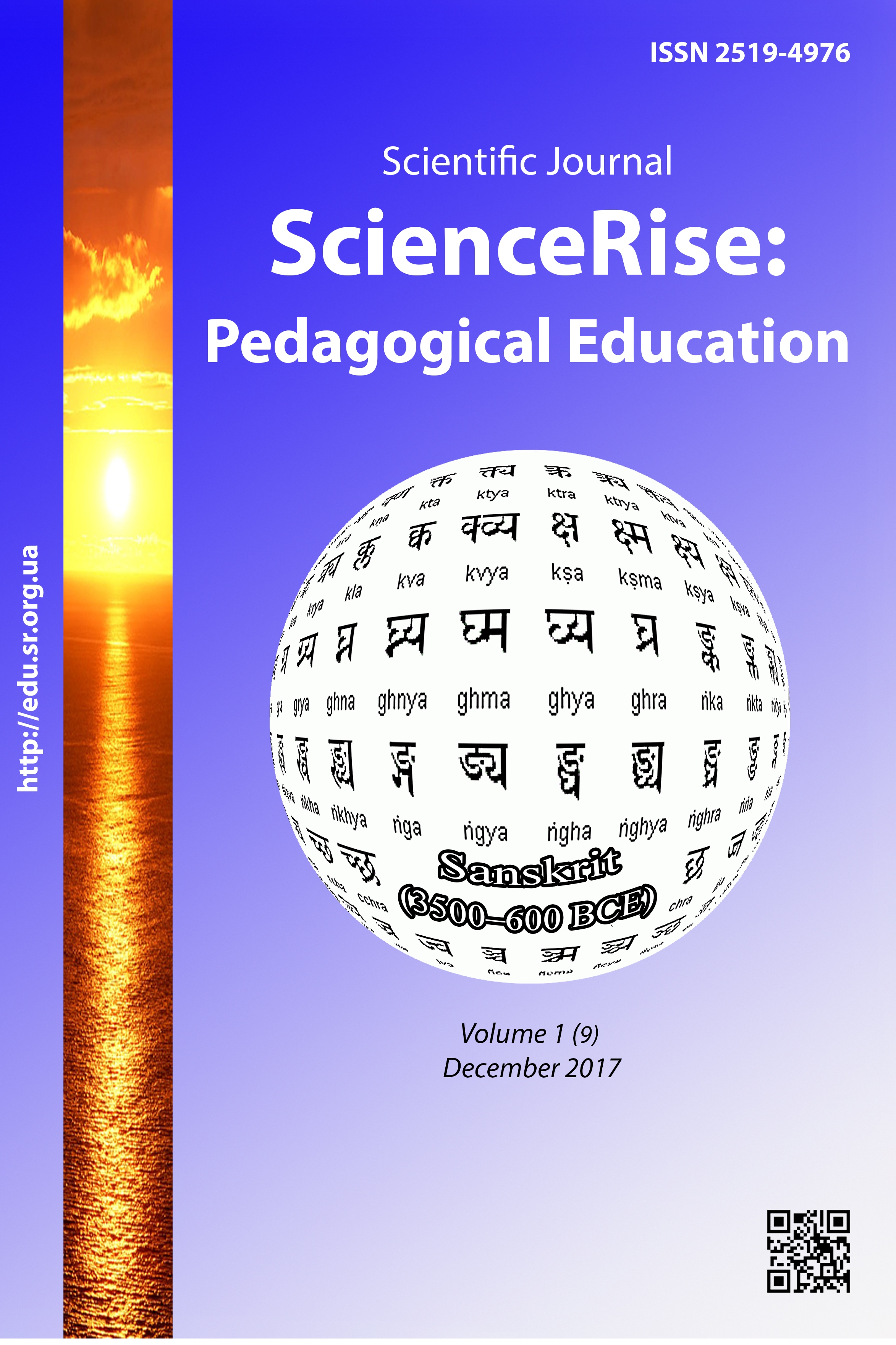Informatization as the factor of optimization of the ideology of the information society in terms of network-communicative space
DOI:
https://doi.org/10.15587/2519-4984.2017.91627Keywords:
the concept of informatization, the factor of optimization, the ideology of the information society, sustainable developmentAbstract
Analyzes, processes information as a factor of optimizing the ideology of the information society and ensuring its sustainable development carried out in the ontologìzacìï, the gnoseologìzacìï and the socìologìzacìï of social life. Each of the information society in its own way and decides in the course of their specific problems, taking into account the features of the type of society and its ideology, when priority is given or the technologies that promote informatization, or the solution of optimization problems of public relations.
Today, there are certain system of indicators of the information society, ie the list of indicators of the development of the information society in different sections: news, economic, social. We see iformatsiyu ideology as a factor in optimizing the information society and ensure its sustainable development. Information Society now provides entry into well-defined features: - globalized information environment as a basis for a new quality of life; - Hiperznachuschist information and knowledge; - Globalized information environment; - Increasing the share of information technology products and services; - Bridging the digital divide, meet human needs in education, information, IT products and servicesReferences
- Voronkova, V. G.; Bazaluk, O. A. (Ed.) (2012). Formirovanie novogo mirovozzreniya, novogo cheloveka, novogo obshchestva budushchego: Kogo i kak vospityvat' v podrastayushchih pokoleniyah. T. 2. Kyiv: Izdatel'skij dom «Skif», 134–152.
- Voronkova, V. H., Sosnin, O. V. (2015). Formation of information society in ukraine: a challenge or need time? Humanities bulletin of zaporizhzhe state engineering academy, 60, 13–24.
- Voronkova, V. H., Nikitenko, V. O. (2013). Suchasna heokul'tura yak sotsiokul'turnyy fenomen kul'turnoyi hlobalizatsiyi. Hileya: naukovyy visnyk, 72, 487–492.
- Dubov, D. V., Ozhevan, O. A., Hnatyuk, S. L. (2010). Informatsiyne suspil'stvo v Ukrayini: hlobal'ni vyklyky ta natsional'ni mozhlyvosti. Kyiv: NISD, 64.
- Ozhevan, M. A., Hnatyuk, S. L., Isakova, T. O.; Dubov, D. V. (Ed.) (2011). Informatsiyni tekhnolohiyi yak faktor suspil'nykh peretvoren' v Ukrayini. Kyiv: NISD, 96 s.
- Sosnin, O. V., Voronkova, V. H., Azhazha, M. A. (2011). Investytsiyi v lyuds'kyy kapital v umovakh hlobal'noyi transformatsiyi. L'viv: «Mahnoliya: 2006», 610.
- Sosnin, O. V., Dz'oban', O. P. (2015). Dz'oban' Information security: new dimensions threats related information and communication sphere. Humanities bulletin of zaporizhzhe state engineering academy, 61, 24–34.
- Sosnin, O. V., Voronkova, V. H.; Ivakin, O. A., Yakovlev, D. V. (Eds.) (2016). Informatsiyne suspil'stvo yak vyklyk hlobalizatsiyi. Chas vyboru: vyklyky informatsiynoyi epokhy. Odesa: Vydavnychyy dim «Hel'vetyka», 472.
- Kyrychenko, M. O. (2016). Epistemolohichni vymiry informatsiynoho suspil'stva u humanitarno-naukovomu dyskursi. Teoretychni ta praktychni zasady rozvytku menedzhmentu orhanizatsiy ta administruvannya v umovakh nezalezhnosti Ukrayiny, 274.
- Lazarevich, A. A.; Levyash, I. Ya. (Ed.) (2015). Stanovlenie informacionnogo obshchestva: kommunikacionno-ehpistemologicheskie i kul'turno-civilizacionnye osnovaniya. Minsk: Belaruskaya navuka, 537.
Downloads
Published
How to Cite
Issue
Section
License
Copyright (c) 2017 Микола Олексійович Кириченко

This work is licensed under a Creative Commons Attribution 4.0 International License.
Our journal abides by the Creative Commons CC BY copyright rights and permissions for open access journals.
Authors, who are published in this journal, agree to the following conditions:
1. The authors reserve the right to authorship of the work and pass the first publication right of this work to the journal under the terms of a Creative Commons CC BY, which allows others to freely distribute the published research with the obligatory reference to the authors of the original work and the first publication of the work in this journal.
2. The authors have the right to conclude separate supplement agreements that relate to non-exclusive work distribution in the form in which it has been published by the journal (for example, to upload the work to the online storage of the journal or publish it as part of a monograph), provided that the reference to the first publication of the work in this journal is included.







